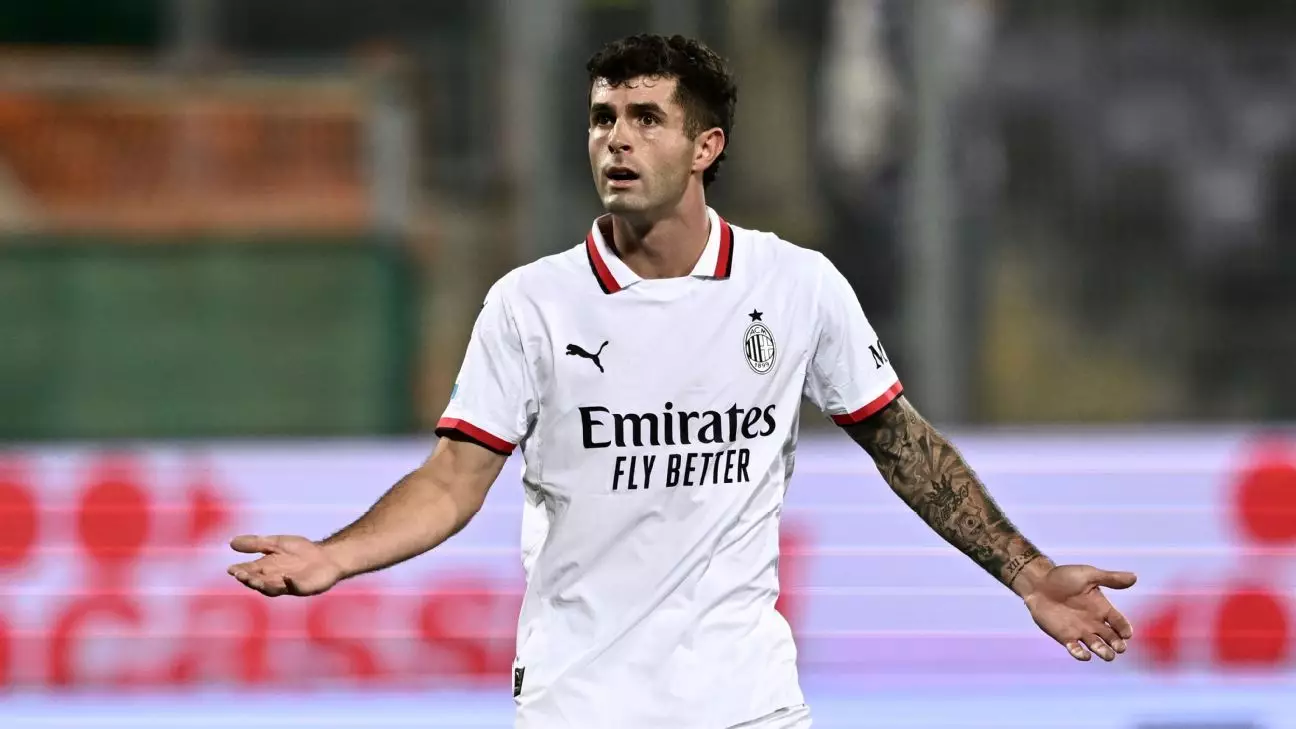AC Milan’s recent match against Fiorentina has left not just fans but also the club’s coach, Paulo Fonseca, in a perplexing predicament concerning penalty responsibilities. During the tightly contested match that ended in a disappointing 2-1 loss for the Rossoneri, the surprise choice of penalty takers sparked a wave of confusion. Christian Pulisic, who had been marked as the designated penalty taker, did not step up when two crucial penalty opportunities arose. Instead, teammates Theo Hernández and Tammy Abraham volunteered for the spot kicks, both of which were thwarted by Fiorentina’s new signing, goalkeeper David de Gea. Fonseca’s reactions reflected his frustration, emphasizing that the players’ choices were contrary to what had been established: “I don’t understand why they altered our plan,” he remarked, signaling a breakdown in communication on the pitch.
Despite the surprising decision-making around the penalties, Pulisic had a strong performance throughout the match, even netting Milan’s equalizer in the second half, marking his sixth goal of the season. Yet, even with his contribution, he was substituted just minutes before the final whistle, leading to speculation about the reasons behind his early exit. Fonseca revealed that Pulisic had been nursing a flexor problem throughout the week, indicating that his fitness might have played a role in the coaching staff’s decisions. However, substituting a key player in a tense finish often raises eyebrows, especially when the game is within reach. The balance between a player’s physical condition and their on-field impact is a precarious one, and in this case, it perhaps backfired.
The match wasn’t just about player decisions; it also involved contentious refereeing. Fonseca openly expressed his dissatisfaction with the officiating, highlighting the three penalized situations that shaped the game’s flow. “This isn’t football,” he declared, critiquing the tendency to award penalties for minimal contact. His assertion that the nature of the sport should involve more physicality than is currently permitted resonates with many fans and players alike who feel the game has drifted away from its roots. Such commentary from coaches often places referees under undue scrutiny, as they are expected to interpret rules in a way that satisfies both teams’ expectations, which is no easy task.
Despite the frustrations relating to penalties and officiating, Fonseca’s resolve to address the team’s shortcomings was evident. “When we fail to convert two penalties and concede an avoidable goal, winning becomes nearly impossible,” he noted. This statement encapsulates the match’s crux—missed opportunities and defensive lapses led to breaking the spirit of Milan’s three-game Serie A winning streak. As they headed into the international break, lingering questions about team dynamics and decision-making loomed large. Being stuck at sixth place and five points behind leaders Napoli only accentuates the need for Milan to regroup and reassess their strategies moving forward. The combination of internal and external challenges will require focused reflection to ensure that such confusion does not repeat in future matches.

